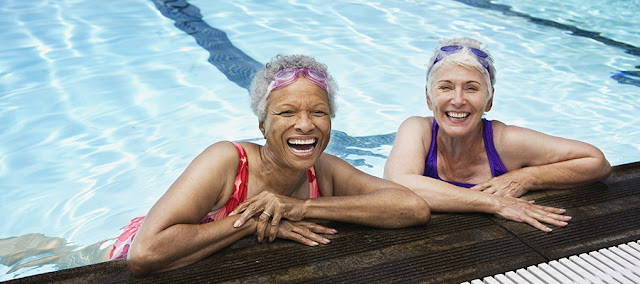A study from University College London explaining why most people look forward to holiday news specifically was published in the middle of 2020. It revealed that "waiting for something anxiously and passionately - reward or holiday - is one of the most important causes of happiness; The expectation is often more exciting than the expectation itself."
According to the researchers, when people look forward to receiving a reward, they receive a benefit known as "the benefit of anticipation," which makes the reward more alluring when it is anticipated. They "earn the time we spend waiting for joyous things, and [their] size is linked to the power of imagining the shape of the next happy time."
Scientists explained this daydream-like joy, which we feel once the holiday approaches, even before it begins; With a small charming effect called "dopamine," it sits in the middle of our brain to give us the desire and motivation to do something when we are happy, and motivates us to enjoy waiting, and we find ourselves happy just to wait for the holidays. And when we know that our holiday is coming, it increases the secretion of dopamine in our brain, to give us this exciting sense of anticipation.
Vacation Ticket to Creativity
The 2016 study defined creativity as "adapting to changes, producing new and useful ideas; to help solve everyday problems ".
It also noted that "cognitive flexibility" was the mental core of creativity, as it referred to "the ability to avoid traditional solutions and normal thinking patterns and overcome functional inertia".
Two weeks after 46 Dutch company workers returned from leave, the researchers noted; "Their thinking was free from negative stimuli, their cognitive flexibility improved and their use of working tools became more creative"; Compared to their performance two weeks before vacation.
They explained that they were using the holiday to break their daily routine, waking up and eating at different times than they used to; They spend more time in recreational activities.
On the contrary, those strained to continue to work followed routine patterns of behaviour; Because their attention is focused on the pressure placed on them, which reduces the reach of creative ideas into their consciousness.
A study published in 2021 confirmed that people do not feel recovered and creativity improved immediately after their vacation, but two weeks after it ended.
Reduce stress and protect against early death
Science shows that the high levels of stress we experience during work throughout the year, are able to cause a decrease in the amount of dopamine released, which can cause depressive behaviors. The leave that frees us from stress helps to rebalance the dopamine system.
In 2016, a field study showed that leave from work relieves employees of stress and provides fertile soil to achieve the three ribs of a triangle of creativity; They are: reducing tension, increasing positive feelings and diversifying experiences ".
In its 2017 report, the American Travel Association stated that "2 in 3 U.S. executives believe that vacations lead to increased creativity."
This has torpedoed the widespread belief that "the longer a person persists in working without rest, the more successful he becomes", and falsely revealed the idea that "people who do not spend their vacation are coming forward".
A study published in 2018 showed that 4 days' leave had positive effects on well-being, recovery and stress for up to 45 days. While I explained that stress reduction was greater for those who spent the vacation away from home.
The authors of the study, published in 2021, also stated that two systematic reviews had confirmed the positive impact of furloughs on staff health and well-being, as reflected in indicators such as low complaint of burnout and poor sleep; and increasing life satisfaction.
Studies have linked not taking long vacations, high risk of heart attack, cardiovascular disease and even early death.
The importance of leave to recharge your batteries
The study, published in 2021, stated that in Western societies, regular work leave is an integral part of working life and leave is generally an essential element of quality of life.
But a study by the American Travel Association found that American workers had 768 million unused vacation days in 2018.
US psychologist Catherine Isham said people in the US worked longer hours and took less time off, causing many mental and physical health challenges.
Short, cumbersome or poorly planned leave does not improve energy levels or reduce stress, but may eliminate the benefits of spending time away.
Planning the leave well in advance, moving away from work, feeling safe and building social relationships; "Making 94% of the holidays yield good results in terms of renewable energy after returning to work."
It is imperative to ensure that our holidays are truly effective, by actually freeing us from the stress of working by avoiding continuing pending tasks, responding to emails, and the like.
In addition, it is essential to prevent our holidays from creating new stressful situations for us, trying to explore different places, enjoying exciting experiences, and even tasting new dishes.
Vacation recipe for luxury
Catherine Isham explained, spending time away from the job, may give us physical and mental health benefits, a better outlook on life, and a greater incentive to achieve the goals.
Based on a Gallup study, it showed that people who devote permanent time to regular holidays received 68.4 degrees in the welfare index.
An early study found that after 3 days of leave, people ' compared to pre-vacation status.
Those gains continued after 5 weeks, for people who had more personal time and general satisfaction during their holidays.
Another study followed, the strengthening of family ties adds to the well-being of holidays by confirming that women taking holidays are more satisfied with their marriage.




Comments
Post a Comment